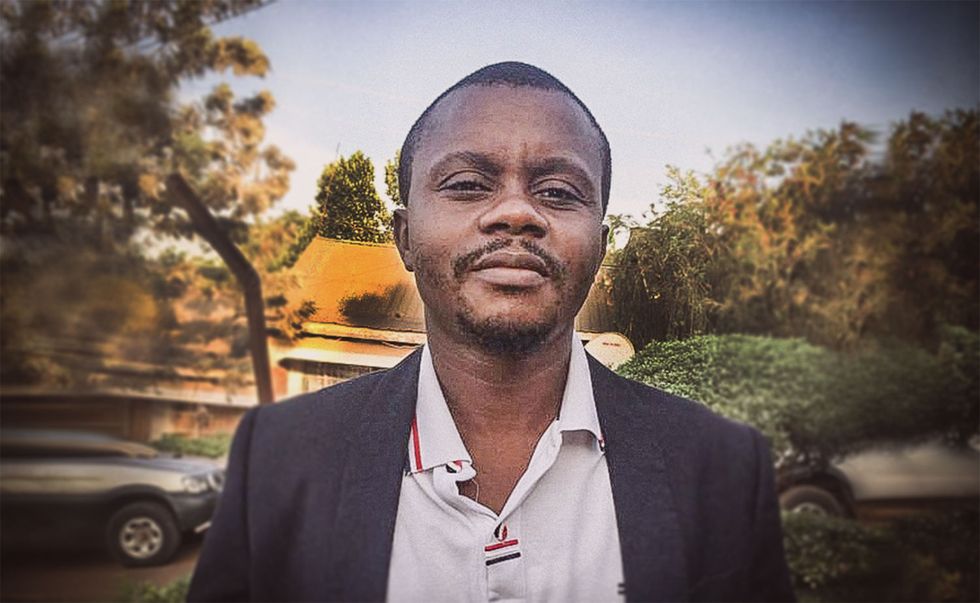The Ted Talk Questionnaire: Robert Hakiza on Using His Story to Empower Refugees
Robert Hakiza, the Congolese co-founder of the Young African Refugees for Integral Development (YARID) talks to us about the TED process.

This August, Arusha, Tanzania will be the setting of TEDGlobal 2017 Conference where 21 innovators will come to spread worthy ideas. 10 are from Africa. As part of our focus on African Futures, this month we wrote to this year’s African Fellows to ask them questions about themselves and their work. TED recently announced that applications to be a 2018 TED Fellow are now open.
Find out more information about the program and how to apply, here.
Our eight interview is with Robert Hakiza, the Congolese co-founder of the Young African Refugees for Integral Development (YARID), an organization which empowers refugees and builds community through vocational education, English classes, access to sports and computer literacy skills. He talks to us about how difficult it was for him to find a subject for his talk.
How did you first find out you were selected?
I first found out I was selected through emails—I was sent a congratulations message by the TED Fellows team.
What was your reaction when you got the word?
Oh my God! When I got the message I first thought it was a dream. Because I first read the email at night, I marked it unread so that I could read it again in the morning. In the morning, it was the first thing I did, and I was very excited but I couldn’t share the news with anyone because we were told to not spread the news yet.
Was it difficult coming up with the concept for your talk/project?
I usually watch the TED Talks, so I can say I had an idea of how to do it but also I can say it wasn’t easy to come up with the concept of my talk. I think at beginning I was making things very complicated, trying to focus on things that would impress people rather that the ideas and stories that can inspire them. I eventually decided to focus on my current work and my own story of displacement. It took me many days to come up with a first draft, but after sharing it with the TED Fellows team I was encouraged to keep the same idea and was given support on how I can make it better.
At what point did you finally say: "yes—I feel good about what I am about to present?"
After deciding to focus on the work I am doing, I felt good on what I will present. I am always proud to talk about it especially when I look at the changes that have happened in my community because of my work.
What did you learn about yourself through the process?
I learned that I have so many stories the world could want to hear, and that I can be an inspiration to the world.
Are you nervous about your presentation?
I cannot really say that I am nervous about my presentation. I am used at presenting in different occasions, but when I think of the TED audience and how big and different it may be from the ones I usually have, I feel a little bit nervous.
Any particular things you are doing by way of preparation?
I’m trying to practice my presentation whenever I get time at home or at my workplace. I am also trying to contact other people I know who have TED talks to seek their advice.
What do you anticipate the world's response will be?
I anticipate the world will be inspired by my presentation. People will be interested in what I am doing and would like to know more about it, and to give me support. Hopefully, they will also change their perceptions about refugees and look at them not as burdens, but as assets.
What would you want it to be?
I want people to stop considering refugees as burdens, and instead view them as people who can contribute to the development of the world. I also want people to support refugee-led initiatives.
What made you passionate about your subject?
What made me passionate about my subject is my pride in being a refugee who’s dedicated to changing other refugee’s lives.
To the next generation of intellectuals who are reading about you and inspired by you right now—what would you say?
To the next generation of intellectuals I would say that no matter the situation in which we are and where we are, we have all the responsibility of changing the world and make it a better place to stay for all without any discrimination.
Personally, what does it mean to you to be selected as a TED fellow?
To me be selected as a TED Fellow means a lot. First of all I realize how great God is because he can lift someone from nothing and put you to a position you’ve never thought you’d reach. He‘s the only one who can reward us. Secondly I feel very honored and elevated to another level.
Where do you hope to go to from here?
From here I hope to be a global advocate for refugees
Check out the rest of our interviews with this year’s TED Fellows here.

